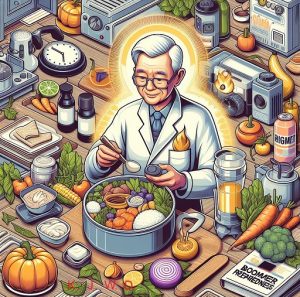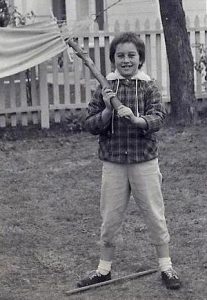Hey-o Retrospect nation I am here, back from the era of dial-up phone calls and disco dancing to drop some cautionary wisdom on any younger minds out there. Some might think their generation invented the whole “safety first” ideas with kale smoothies and mindfulness apps, but let me tell you, boomers like me had that sh*t on lock down long before yoga pants became a universal fashion statement.
Sure, back in our day, safety wasn’t just about chia seeds and chakra alignments. It was about knee pads on every playground, helmets that could double as soup bowls, and enough dusk time reflective vests to make a disco ball jealous.
When we weren’t hugging trees, we were building tree houses with enough structural integrity to withstand a Category 5 hurricane (because, in the 70s, every weatherman sounded like they were narrating the apocalypse).
Now, don’t get me wrong, I get the whole “YOYO” thing. I was young once too, hell, I once did a tequila shot off a female dancer’s stiletto and I still have the scar to prove it. But somewhere between the acid rain scares and the Challenger explosion, my inner daredevil got replaced with a walking encyclopedia of safety regulations. Maybe it was watching my dad chain-smoke his way through three packs a day while lecturing me about not putting forks in outlets. It was good advice though maybe it was me realizing that adulthood is basically a series of near-death experiences masquerading as bills due and other responsibilities.
Whatever the reason, I became the MacGyver of mishap prevention. For a while I stockpiled enough canned goods to feed a small village. My first-aid kit was basically a mobile pharmacy that could patch up Frankenstein’s monster. And I had an emergency plan for every conceivable disaster, from rogue lawnmower rebellions to spontaneous furniture combustion.
Some might have call me paranoid, but I call it, then and now, informed skepticism combined with wariness. It’s about respecting the universe’s tendency to throw banana peels at my feet and me being ready to tango with those bananas like a drunken tap-dancing bear. It’s about knowing that a little duct tape and a well-placed fire extinguisher can be the difference between a mildly singed eyebrow and a Reverse Darwin Award nomination.
So, yeah, I’m a safety-first boomer with a helmet hairdo and a penchant for hoarding emergency blankets. But hey, at least I’ll be the one laughing when the AI robot uprising comes and everyone else starts scrambling away from their iPhones. I’ll be the guy building a fort out of my stockpile, sipping lentil soup from a mug fashioned from a repurposed bike helmet, and watching all the chaos unfold on my solar-powered tablet.
So take my advice folks and embrace the safety net; Keep your helmet nearby, stock your pantry, and learn how to build a fire with nothing but a magnifying glass and a granola bar wrapper. Because, let’s be honest, the world’s a wild place, and a little caution can go a long way.
Besides, who knows, maybe one day our safety-first ways will save us from a rogue sentient Roomba rebellion and then we will be the ones with the smug grins and the emergency burritos. Meanwhile remember, stay safe, stay weird, and never underestimate the power of a well-placed roll of duct tape.
—30–






